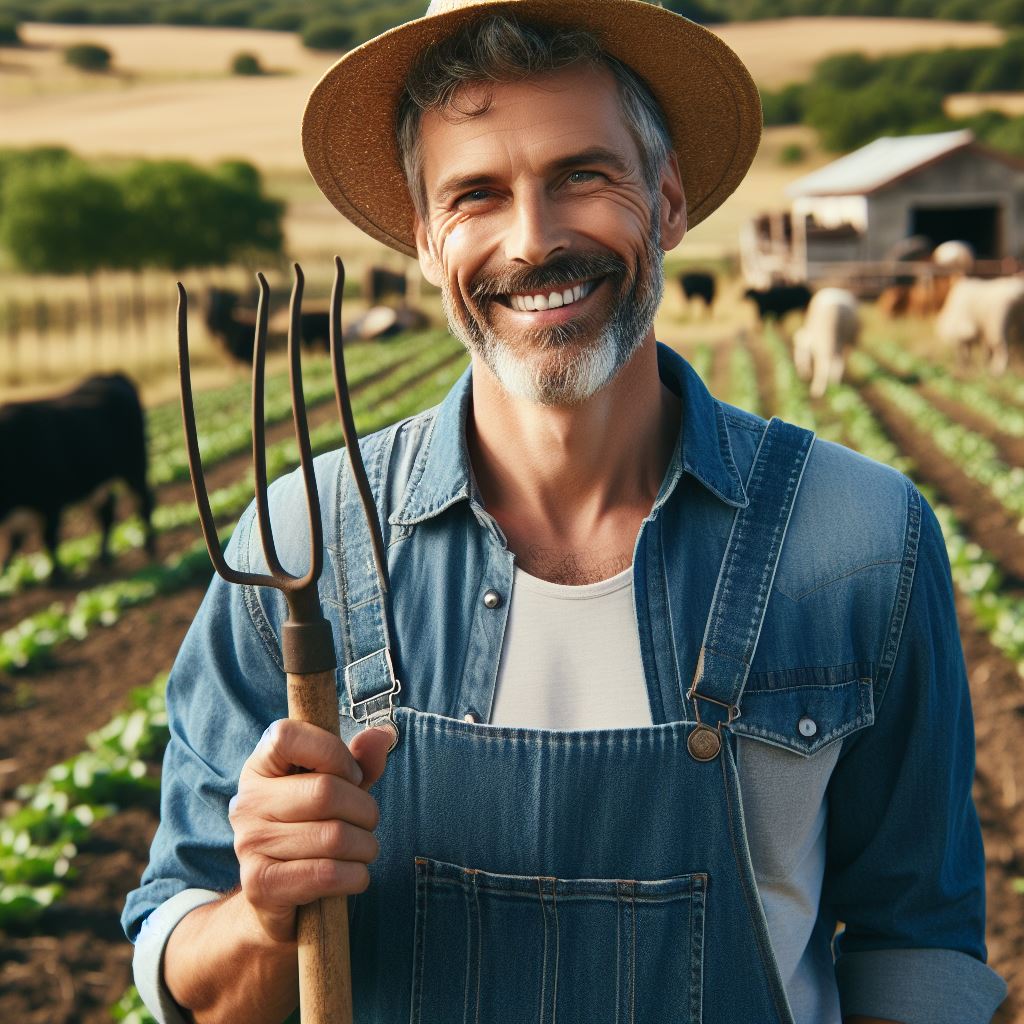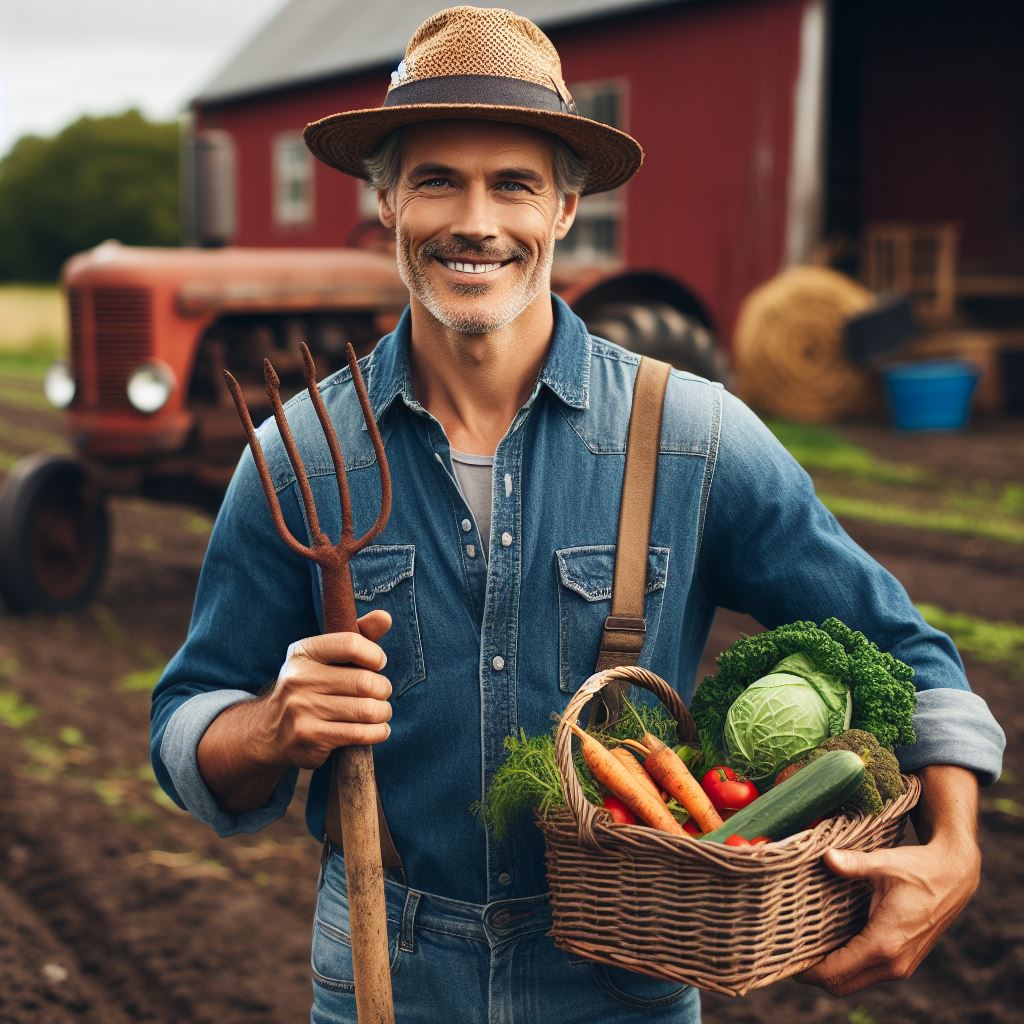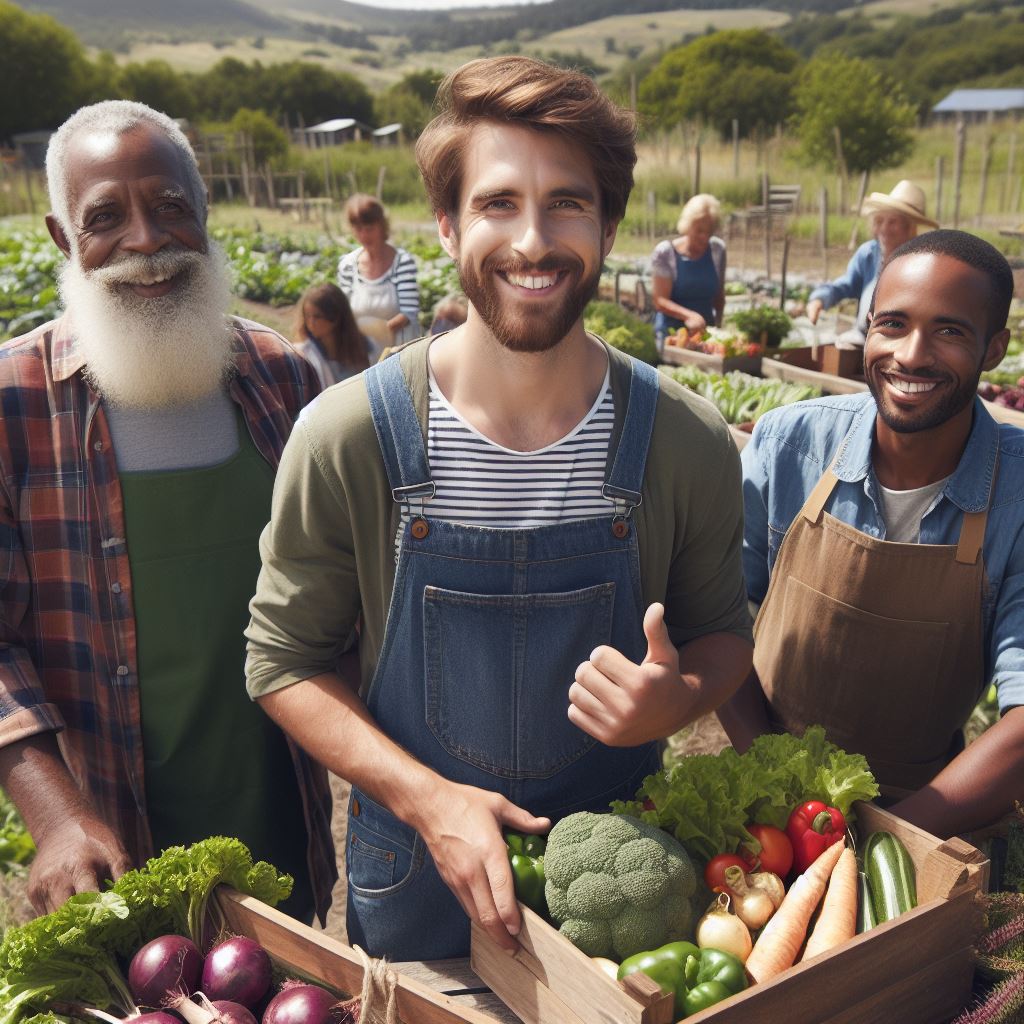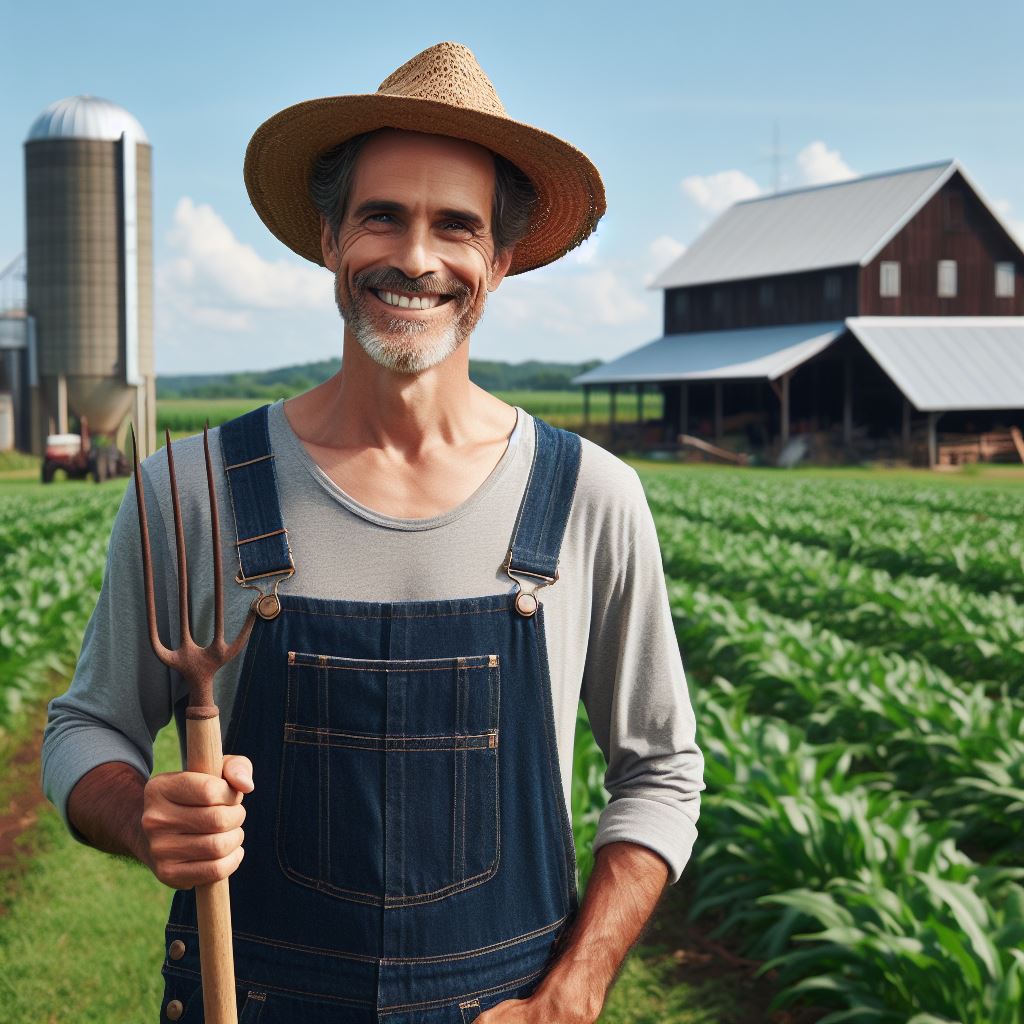Introduction
The farm-to-table movement revolutionizes how we view and consume food, emphasizing locally sourced ingredients.
As our society becomes more conscious of the origin of what we eat, there’s a growing interest in supporting local farmers and businesses.
Consumers are recognizing the benefits, not just for their health but for the environment and the community.
Education and information sharing play a pivotal role in fostering this understanding.
Understanding where our food comes from empowers us to make informed choices, supporting sustainable practices and reducing our carbon footprint.
Local seminars serve as a crucial platform for disseminating this knowledge.
These seminars provide a direct line of communication between farmers, producers, and consumers, bridging the gap that often exists in the conventional food supply chain.
They offer insights into farming practices, seasonal produce, and the economic impact of choosing local.
The importance of education in these seminars goes beyond the individual.
It builds a community that values the preservation of local agriculture, ensuring that future generations inherit a sustainable and diverse food culture.
In the upcoming section, we’ll delve deeper into the core aspects of farm-to-table, exploring how these local seminars contribute to a healthier, more connected, and environmentally conscious society.
Benefits of Attending Local Seminars
When it comes to learning about the farm-to-table movement, nothing beats attending local seminars.
These events provide valuable opportunities to gain knowledge, connect with local farmers and producers, learn about sustainable farming practices, and discover the health benefits of eating locally sourced food.
Gain knowledge about the farm-to-table movement
- Local seminars offer in-depth information about the farm-to-table movement, its history, and its impact on communities.
- Through presentations and discussions, attendees can learn about the importance of supporting local food systems.
- Experts share insights on the benefits of consuming fresh, locally grown produce and the environmental advantages of reducing food miles.
Opportunities to connect with local farmers and producers
- Attending local seminars allows individuals to meet and interact with the farmers and producers behind their food.
- Engaging in conversations with these local food providers creates a sense of community and fosters relationships.
- Participants can learn more about local sourcing, ask questions about farming practices, and gain a deeper understanding of the food they consume.
Learn about sustainable farming practices
- Local seminars often feature workshops and presentations on sustainable farming techniques.
- Experts share their knowledge on organic farming, regenerative agriculture, permaculture, and other environmentally friendly practices.
- Participants can gain insights into reducing the use of chemicals, conserving water, and promoting biodiversity on farms.
Discover the health benefits of eating locally sourced food
- Local seminars emphasize the health advantages of consuming locally sourced, fresh, and seasonal food.
- Experts discuss the nutritional value of local produce and its positive impact on overall well-being.
- Attendees can learn about the absence of preservatives and the higher levels of vitamins and minerals in locally grown food.
In general, attending local seminars offers a multitude of benefits for individuals interested in the farm-to-table movement.
These events provide the knowledge and understanding needed to make informed decisions about food choices and support local farmers and producers.
By connecting with the source of their food, attendees help build stronger communities and contribute to sustainable farming practices.
Moreover, they get to enjoy the numerous health benefits associated with consuming locally sourced, fresh, and nutritious food.
Finding Local Seminars
When it comes to exploring farm-to-table practices and learning more about the local food movement, attending seminars can be incredibly valuable.
These events offer opportunities to connect with experts in the field, gain practical knowledge, and build connections with like-minded individuals.
To find local seminars on farm-to-table, there are several avenues to explore:
Local Agricultural Extension Offices and Community Centers
- Contact your local agricultural extension office or community center to inquire about any upcoming seminars or workshops related to farm-to-table or sustainable agriculture. These institutions often organize educational events that cater to the local community’s needs and interests.
- Attendees can learn about topics such as organic farming, permaculture, soil health, and sustainable livestock management.
- These seminars usually feature guest speakers and industry professionals who share their knowledge and offer practical advice for implementing farm-to-table practices.
- Engaging with local extension offices and community centers also provides an excellent opportunity to network with other individuals passionate about farm-to-table.
Online Resources and Event Listings
- Utilize online resources and event listings to discover local seminars on farm-to-table practices.
- Popular websites such as Eventbrite, Meetup, and local community boards often feature a calendar of events that includes agricultural and sustainable food-related seminars.
- These platforms allow users to filter events based on location and interests, making it easier to find relevant seminars in your area.
- Online resources also provide helpful information such as event descriptions, speaker profiles, and registration details.
Collaborations with Local Restaurants or Farmer’s Markets
- Collaborations between local restaurants, farmer’s markets, and farm-to-table organizations can lead to informative seminars.
- Restaurants that emphasize locally-sourced ingredients and sustainable practices often partner with experts to offer educational seminars for their customers.
- These seminars may focus on topics like the benefits of eating locally, sustainability in the food industry, or the impact of farm-to-table practices on the community.
- Farmer’s markets frequently organize workshops and seminars where attendees can learn about the importance of supporting local farmers and how to incorporate fresh, seasonal produce into their meals.
Finding local seminars on farm-to-table practices is an excellent way to expand your knowledge and connect with others who share a passion for sustainable agriculture.
Whether you turn to local institutions, online resources, or collaborations with restaurants and farmer’s markets, there are numerous avenues to explore in your quest for farm-to-table education.
Read: Find Your Local CSA: A Guide
Seminar Topics and Content
During our local seminars, we cover a range of topics related to farm-to-table practices.
Here are some of the key subjects we delve into:
Introduction to Farm-to-Table Practices
We begin by providing participants with a comprehensive overview of farm-to-table practices.
We explain the concept and highlight its importance in promoting sustainable and healthy food systems.
Sustainable Farming Techniques
One of the core topics we address is sustainable farming techniques.
We explore methods that minimize the environmental impact of agriculture, such as organic farming and permaculture.
Crop Rotation and Soil Health
Crop rotation and soil health go hand in hand, and we emphasize their significance in our seminars.
We discuss the benefits of crop rotation for maintaining soil fertility and preventing disease and nutrient depletion.
Transform Your Agribusiness
Unlock your farm's potential with expert advice tailored to your needs. Get actionable steps that drive real results.
Get StartedOrganic Pest Control and Natural Fertilizers
We educate attendees on the importance of organic pest control and the use of natural fertilizers.
Participants learn about alternative methods to synthetic pesticides and chemical fertilizers that can have harmful effects on both human health and the environment.
Benefits of Grass-Fed and Pasture-Raised Livestock
Another crucial aspect of farm-to-table practices is the rearing of grass-fed and pasture-raised livestock.
Our seminars examine the numerous benefits of this approach, such as improving animal welfare and producing healthier and more flavorful meat and dairy products.
Understanding Food Labels and Certifications
Food labeling and certifications can be confusing for consumers.
In our seminars, we break down the different labels and certifications found on food products, helping participants make informed choices based on their values and preferences.
Through our comprehensive seminar topics, we aim to empower individuals with the knowledge and understanding needed to support the farm-to-table movement.
By exploring these subjects, attendees gain the tools to make informed decisions about their food choices and contribute to a more sustainable and healthy food system.
Read: Benefits of Joining a CSA
Interacting with Local Farmers and Producers
The farm-to-table movement has gained significant momentum in recent years, as more people seek to connect with their food and support local businesses.
One of the most valuable aspects of this movement is the opportunity to interact directly with local farmers and producers.
Opportunities for direct purchasing
- Visiting farmers markets allows consumers to buy fresh, locally grown produce and other products.
- Direct purchasing eliminates the need for intermediaries, ensuring fair prices for both farmers and consumers.
- Meeting farmers and producers face-to-face allows customers to ask questions about their farming practices and product quality.
- Customers can also discover unique and heirloom varieties of fruits, vegetables, and meats that are not readily available in supermarkets.
- Direct purchasing supports small-scale farmers, enabling them to continue their agricultural practices and preserve traditional farming methods.
Building relationships and establishing trust
- Interacting with local farmers and producers fosters a sense of community and strengthens bonds.
- By engaging in conversations, customers can gain a deeper understanding of the challenges farmers face and appreciate their hard work.
- Frequent interactions allow farmers and producers to get to know their regular customers, enhancing trust and loyalty.
- Building relationships with local producers encourages collaboration and the sharing of ideas for sustainable agricultural practices.
- Visiting farms and attending seminars creates an opportunity to witness firsthand how the food is grown, raised, and harvested.
Supporting local economies and promoting sustainability
- When consumers buy directly from local farmers and producers, they contribute to the growth of the local economy.
- Small-scale farmers are more likely to invest their profits back into their businesses, leading to job creation.
- Supporting local agriculture reduces the carbon footprint associated with transporting food long distances.
- Local farmers often implement sustainable farming practices, limiting chemical use and reducing soil erosion.
- By supporting local farmers, consumers help protect farmland from being converted into housing or commercial developments.
In fact, interacting with local farmers and producers is a valuable experience that offers numerous benefits.
It allows consumers to directly purchase fresh, high-quality products, while building relationships and establishing trust within the community.
Moreover, supporting local economies and promoting sustainability are crucial aspects of the farm-to-table movement.
By engaging with local farmers, consumers can contribute to the growth of their communities and ensure a more sustainable future for the food industry.
Read: Farm-to-Table: A CSA Journey

Learning Experiences at Seminars
Attending local seminars on farm-to-table practices offers a variety of interactive learning experiences that deeply enrich our understanding of sustainable food production.
Hands-on Workshops and Demonstrations
One of the highlights of these seminars is the opportunity to participate in hands-on workshops and demonstrations.
Experts in the field guide attendees through practical exercises that teach skills such as composting, organic gardening, and food preservation.
This immersive learning experience allows participants to gain a deeper understanding of the farm-to-table process by actively engaging in the techniques and practices that sustainably bring food from the farm to our tables.
Field Trips to Local Farms and Food Production Facilities
Another invaluable aspect of attending these seminars is the chance to embark on field trips to local farms and food production facilities.
These visits provide a firsthand experience of how food is grown, harvested, and processed within our community.
By stepping onto the farm and witnessing the various stages of food production, participants gain a newfound appreciation for the dedication and hard work that goes into bringing fresh, locally sourced products to market.
Tastings and Samplings of Locally Sourced Products
One of the most highly anticipated parts of these seminars is the opportunity to indulge in tastings and samplings of locally sourced products.
Attendees are treated to a sensory experience that allows them to savor the flavors of the region.
Sampling fresh produce, dairy products, and artisanal creations showcases the high-quality and distinctive tastes that result from farm-to-table practices.
This aspect not only educates participants but also ignites a desire to support local farmers and businesses.
Through these impactful learning experiences, attending farm-to-table seminars goes beyond theoretical knowledge by fostering a direct connection to the sustainable food movement.
By actively engaging in hands-on workshops, experiencing farm visits, and enjoying tastings, participants gain a comprehensive understanding of the importance of supporting local agriculture and food systems.
Moreover, these seminars empower attendees to make informed choices about the food they consume and inspire them to advocate for sustainable practices within their communities.
So, don’t miss the opportunity to immerse yourself in the learning experiences offered by these local seminars on farm-to-table practices.
Join the movement and become an active participant in creating a healthier, more sustainable food future!
Read: Organic Food & CSA Impact
Networking and Community Building
Connecting with like-minded individuals
- Attending local seminars provides an opportunity to meet and connect with other individuals who share a passion for farm-to-table movement.
- Building a network of like-minded individuals can lead to collaborative projects and new opportunities for growth.
- Interacting with people who have similar interests can be a source of inspiration and motivation.
- Engaging in discussions and conversations with fellow attendees can expand knowledge and perspectives on sustainable food practices.
- Networking with farmers, chefs, and other food enthusiasts can be beneficial for future business partnerships or employment opportunities.
Collaboration with local chefs and restaurants
- Local seminars act as a hub to connect with professional chefs and restaurants interested in farm-to-table concepts.
- Collaborating with local chefs can lead to innovative menu creations that emphasize the use of locally sourced ingredients.
- By working together, farms and restaurants can create a sustainable local food system that benefits both parties.
- Partnering with restaurants can provide farmers with a stable market for their produce and support their economic viability.
- Collaborative efforts can promote the importance of supporting local food systems and educate the community about sustainable practices.
Sharing ideas and resources
- Attending seminars encourages the exchange of ideas and best practices among participants.
- Sharing experiences, success stories, and challenges can help in finding innovative solutions to common issues.
- Participants can learn from each other about effective farming techniques, crop rotation methods, and sustainable pest control strategies.
- Seminars provide a platform to share resources such as contacts, suppliers, and educational materials.
- By sharing resources, attendees can strengthen the local food community and contribute to its growth and sustainability.
Creating a sense of belonging and support
- Local seminars help in fostering a sense of community and belonging among individuals involved in the farm-to-table movement.
- Being part of a supportive community motivates individuals to continue their sustainable farming practices.
- The connections made through seminars can provide emotional support during challenging times in the agricultural industry.
- Participants can discuss common issues, seek advice, and find encouragement from their peers.
- A strong community helps in raising awareness about the benefits of locally grown food and inspires others to join the movement.
In short, attending local farm-to-table seminars is an excellent way to network with like-minded individuals, collaborate with local chefs and restaurants, share ideas and resources, and create a sense of belonging and support.
These seminars provide a platform to connect with others who are passionate about sustainable food practices and offer opportunities for personal and professional growth in the farm-to-table community.
Conclusion
Attending local seminars is vital for farm-to-table enthusiasts.
These gatherings ignite passion, fostering a deeper understanding of sustainable practices.
By participating, one actively supports local food systems, bolstering community well-being.
Engaging in these seminars offers a unique opportunity to connect with like-minded individuals.
The shared enthusiasm becomes a catalyst for positive change in our local communities.
Through active participation, attendees contribute to the growth of a sustainable and resilient food ecosystem.
The importance of education cannot be overstated.
Seminars provide a platform to learn about innovative farming techniques, emerging trends, and the challenges faced by local producers.
This knowledge empowers attendees to make informed choices that positively impact the environment and their communities.
Showcase Your Farming Business
Publish your professional farming services profile on our blog for a one-time fee of $200 and reach a dedicated audience of farmers and agribusiness owners.
Publish Your ProfileMoreover, local seminars encourage a direct connection with farmers and producers.
Understanding the journey from farm to table fosters appreciation for the hard work and dedication involved.
This awareness, in turn, strengthens the bond between consumers and local food providers, creating a more transparent and supportive relationship.
Promoting sustainability is not just a buzzword; it’s a collective responsibility.
By actively participating in local seminars, individuals become ambassadors for sustainable living.
This advocacy ripples through communities, promoting a holistic approach to well-being that encompasses both individuals and the environment.
In closing, attending local seminars transforms farm-to-table enthusiasts into advocates for sustainable practices, fostering community well-being and supporting local food systems.
Embrace the opportunity to learn, connect, and contribute to the flourishing tapestry of a truly sustainable future.




